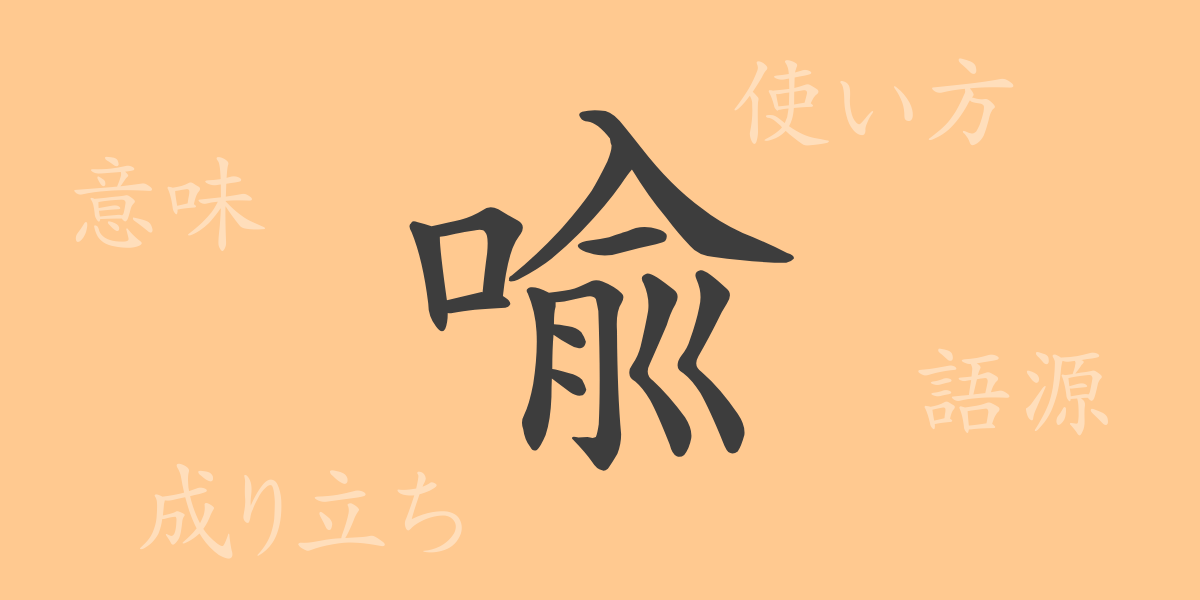Kanji(かんじ) are unique characters that convey meaning through their shapes and sounds. The 常用漢字(じょうようかんじ) (Jouyou Kanji), commonly used in everyday life in Japan, range from frequently used characters to those used only in specific contexts. The character “喩(ゆ)” belongs to the latter category and is one of the kanji that enriches our language. In this article, we will delve into the origin, meaning, usage, compounds, and idiomatic expressions of “喩(ゆ),” exploring its allure.
Origin of 喩(ゆ) (Etymology)
The kanji “喩(ゆ)” originates from the act of conveying something by comparing it to something else through words. This character, born in ancient China, was transmitted to Japan over time and developed uniquely. “喩(ゆ)” combines the radical for “言(こと)” (words) with “兪(ゆ)” (compare), symbolizing the act of speaking and showing comparisons, which gave rise to its form.
Meaning and Usage of 喩(ゆ)
“喩(ゆ)” means “to compare” or “to liken,” and it is used when explaining something by comparing it to something else. It is particularly common in literature and rhetoric in the form of “比喩(ひゆ)” (metaphor). The verb “喩える(たとえる)” is also read as “tatoeru,” serving as a means to convey things clearly.
Reading, Stroke Count, and Radical of 喩(ゆ)
Understanding the readings and components of the kanji “喩(ゆ)” as a Japanese character can deepen your comprehension.
- Readings: “ユ(ゆ)” in on’yomi (Chinese reading), “たと.える(tato.eru)” and “さと.す(sato.su)” in kun’yomi (Japanese reading).
- Stroke Count: It has a total of 12 strokes.
- Radical: The radical is 口(くちへん) (kuchi-hen).
Compounds, Idiomatic Expressions, and Proverbs Using 喩(ゆ)
Compounds, idiomatic expressions, and proverbs containing “喩(ゆ)” often utilize its metaphorical meaning. Here are some examples:
- 「前置きなしに言う(まえおきなしにいう)」 – To get straight to the point.
- 「喩え話(たとえばなし)」 – A story that explains something by likening it to something else.
- 「物言いを喩える(ものいいをたとえる)」 – To express words indirectly.
Summary of 喩(ゆ)
The kanji “喩(ゆ)” is essential when conveying things through metaphors and comparisons. Its unique meaning and usage enrich the Japanese language and make our communication more effective. By understanding and appropriately using the compounds and idiomatic expressions containing “喩(ゆ)” introduced in this article, you can further enhance the power of words.

























